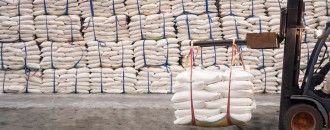
ASSOCHAM urges Govt to impose 10% customs duty on pulp imports
The Dollar Business Bureau
The apex industry body Associated Chambers of Commerce and Industry of India (ASSOCHAM), in its pre-budget recommendations, urged the Government to levy a 10% customs duty on hardwood chemical pulp and bleached chemi-thermo mechanical pulp (BCTMP) imports in order to promote production of pulp in the country.
The industry said that this would provide a fillip in creating jobs and support overall economic development of the country’s vast rural hinterland which covers pulpwood plantations.
“These measures would help energise creation of sustainable sources of fibre required by Indian pulp and paper industry,” ASSOCHAM said in a statement on Tuesday.
It also asked for policy measures for facilitating participation of private sector in plantation development programmes.
As per estimates, India imports more than 1.25 million metric tonnes (MMT) of pulp valuing around $710 million (Rs.4,600 crore approx.) each year.
In May 2012, the Government has reduced the import duty on pulp to zero from 5%. Due to reduction of duty, there is a revenue loss of about Rs.245 crore a year, from these imports.
“Consequent to the customs duty exemption, annual pulp imports are expected to increase significantly in near future to the levels of $2 billion, the statement said.
ASSOCHAM Secretary General, DS Rawat, said, “Development of plantation farming to produce raw materials for paper and paperboards industry is a readily available avenue for creating substantial employment opportunities on a sustainable basis.”
“Potential in this regard has been completely undermined by a taxation framework wherein pulp is exempt from customs duties,” he added.
“In an era of increasing global competition it is necessary for governments and industry to work in partnership to ensure creation of economic wealth for the nation,” said Rawat.
In addition, the industry body recommended that capital goods needed in the paper and paperboard industry for technological upgradation particularly for environmental protection and for Corporate Responsibility for Environmental Protection (CREP) compliance, be allowed to be imported at ‘zero’ rate.






 to success.
to success.